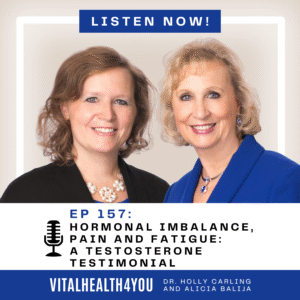If you were to ask someone what they value most in life, they would say family, Church, pets, maybe their job, and their health. Some forget about the later until you say “what about your health?” Then it’s an emphatic “oh yes!” Yet when it comes to paying to stay well, many don’t prioritize the cost, or put out as minimum as possible. When they are stressed, the time they need support the most, that’s when they stop eating well, exercising, getting their supplements or seeking health-supportive therapies. I saw a sign in a doctor’s office one time that said “You will either pay to be well, or pay when you are ill, but either way, you pay.” If either way you have to pay, why not invest in the healthier option?
I was looking at a website that was evaluating which was cheaper – conventional medicine or alternative medicine. They used statistics from reports such as the Drug Trend Report released by the pharmaceutical industry regarding costs of prescriptions, factored in average health insurance coverage reports from the insurance industry, including average number of visits to a doctor (alternative or conventional), insurance deductibles, co-pays and out of pocket expenses. The only over the counter meds they factored in was NSAIDS – not the hundreds or thousands of other “low dose” medications, but they did factor in herbs and supplements and also lab work, maintenance treatments as well as the repeated visits typically required of alternative/complementary care physicians.
Still, the results were that over the course of a year, it was $1200 – $3,000 cheaper for natural health care! Cheaper, not more expensive. In another study done in the 1990’s they also factored in time loss from work. They too found it was not only cheaper to get well naturally, and especially, long range to stay well, than to pay to be sick, but those using alternative/complementary therapies were significantly healthier.
According to the World Health Organization’s Healthy Life Expectancy: How Many Years of Healthy Life we can Expect to Live, they say that “the US spends more than twice as much per person on health care as 21 other industrialized countries. But our health ranks dead last”. Why are we paying so much in medical costs when we have more control over our health than believed a few decades ago?
Clear back in 1939 it was obvious that we were headed for trouble due to the lack of quality nutrients in our foods. In Food and Life: The United States Department of Agriculture Yearbook for 1939 it said, “The chief fault of many American diets is that they provide too little of the essential minerals and vitamins. This fault is due in large measure to the fact that refined foods are consumed in such amounts, that intake of minerals and vitamin rich foods are lower than it should be.” Wow! Wouldn’t those authors be shocked if they saw how deplorable our foods were today? In 1988 The former Surgeon General Dr. C. Everett Koop stated in his Surgeon General Report that “the American diet was the cause of approximately two-thirds of the deaths due to disease in America”.
So what can we do about it? Make health a priority. Choose to resolve health issues, and not just manage the symptoms. Invest in your health. Doing so can increase productivity, reduce errors at work, help prevent accidents and when you feel better, you are calmer and nicer to be around! Investing in your health is the most important gift you can give yourself. As we enter the gift-giving season, consider giving the gift of health to someone you care about. It’s the best gift you could ever give!
©2018 Holly A. Carling, O.M.D., L.Ac., Ph.D.
Medical/Health Disclaimer:
The information provided in this article should not be construed as personal medical advice or instruction. No action should be taken based solely on the contents of this article. Readers should consult appropriate health professionals on any matter relating to their health and well-being. The information and opinions provided here are believed to be accurate and sound, based on the best judgment available to the author, but readers who fail to consult appropriate health authorities assume the risk of any injuries.







